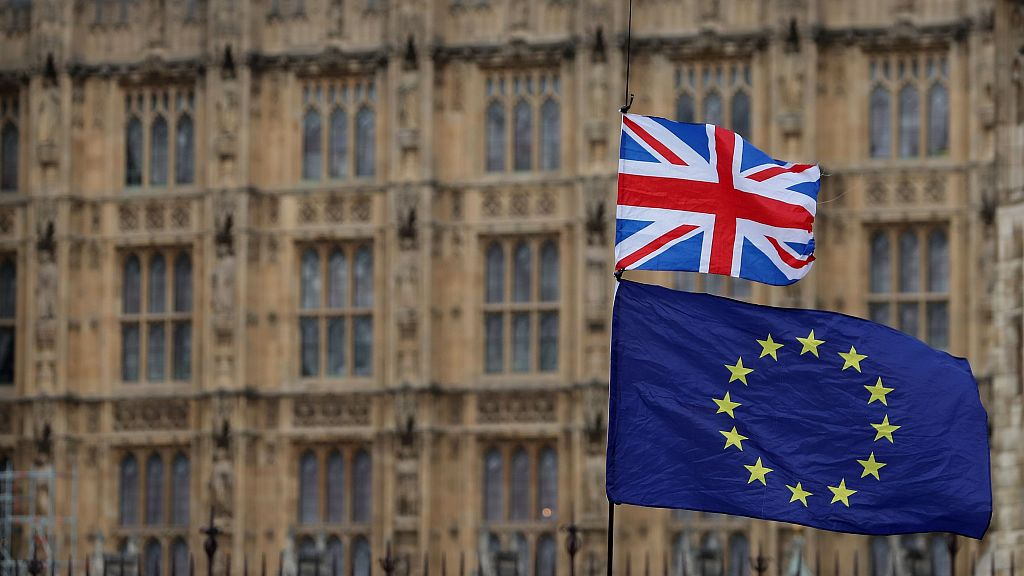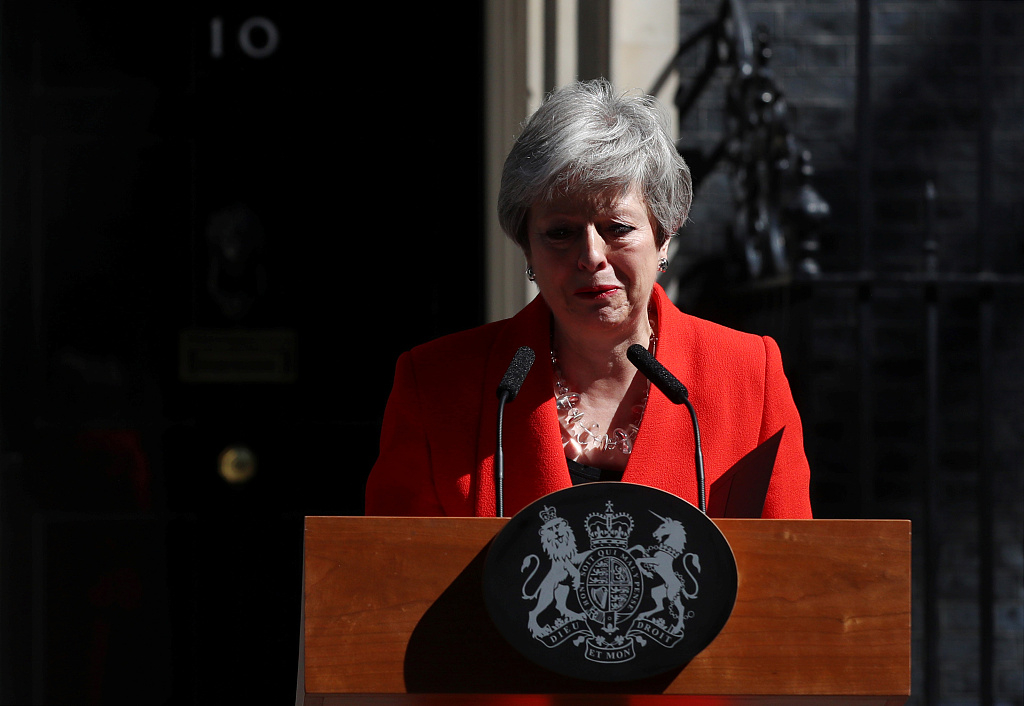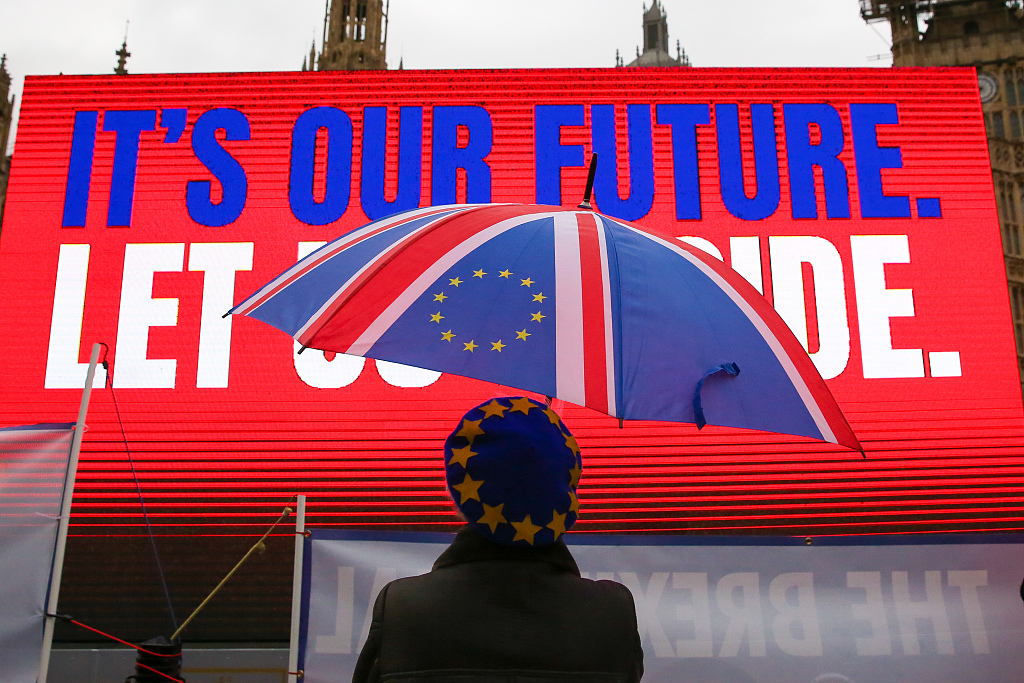

Editor's note: Chris Deacon is a postgraduate researcher in politics and international relations at the University of London and has previously worked as an international commercial lawyer. The article reflects the author's opinion, and not necessarily the views of CGTN.
On Wednesday afternoon, British Members of Parliament voted on a motion that many had called the last chance to stop a no-deal Brexit from occurring. Those MPs, however, were disappointed as they were unable to defeat the government, raising the likelihood that the United Kingdom will leave the European Union without a deal at the end of October.
As multiple contenders for the leadership of the governing Conservative Party – and, therefore, Prime Minister – pledge that they will refuse to extend the Article 50 process any further, many have become concerned that the next UK government will implement a no-deal Brexit.
This issue has been lingering in the Brexit debate for some time, but it has come to a head since the European elections, in which the Brexit Party – advocating leaving the EU without a deal – romped to victory, and since the resignation of Theresa May, who – despite initially clinging to the view that “no deal is better than a bad deal” – ultimately concluded that the UK government could not countenance such an eventuality.

British Prime Minister Theresa May delivers a statement in London, Britain, May 24, 2019. /VCG Photo
The difficulty comes in attempting to stop this from happening if the new government does back it. If a Brexit deal is still not approved by Parliament before October 31 – which seems highly likely – the only way to avoid leaving the EU without an agreement will be to negotiate an extension with the European Council. However, even if a majority of MPs support such an extension – and oppose no-deal – it is not easy to instruct the government to act accordingly.
There are complex constitutional rules at play here. Generally, in the realm of foreign policy, the government is afforded sweeping powers to act unilaterally without considering Parliament’s views by channeling the power of the Crown – known as “royal prerogative”. The limits of such powers in relation to Brexit have been shown in the past, however, such as in the case brought by Gina Miller to the UK’s Supreme Court regarding the triggering of Article 50 in the first place. The court agreed with Miller that MPs had to be consulted on this.
In this case, however, the government would not actually need to “do” anything for no-deal to occur. On the contrary, doing precisely nothing is what would allow this to happen. Thus, MPs need to attempt to compel the government to extend Article 50 come October 31 – and this is very difficult.
To attempt to assist with this task, opposition MPs on Wednesday tried to pass a motion which would allow them to “take control” of Parliament on June 25 to hold a debate on Brexit. MPs would then have the opportunity to propose legislation which they hoped might make a no-deal Brexit less likely. This could include, for example, passing legislation which compels the government to extend Article 50.

An Anti-Brexit protester seen holding an umbrella protesting outside the Houses of Parliament, January 15, 2019. /VCG Photo
There were also proposals that MPs might be able to ensure that Parliament is allowed to sit at the crucial time at the end of October. This has become an issue because there has been some discussion of the next government using their power to deliberately end the current session of Parliament – a process called “prorogation” – at the crucial time to stop MPs from attempting to circumvent a no-deal Brexit.
Such threats have been rejected by many of the contenders to be the next Prime Minister, but have not been ruled out by all, despite accusations that they would constitute an undemocratic and dictatorial act by the government.
Victory for opposition MPs on Wednesday might have allowed such a move to be blocked in any event, but the motion’s defeat has put this idea to bed for the time being. It is possible that MPs will try this again – or other, similar tactics – later this year, but the vote shows the uphill battle they have in convincing a majority of MPs that this is the best approach.
It now seems more and more likely that the only way a no-deal Brexit will be avoided is if, come the formation of the new government, enough MPs from the governing Conservative Party rebel against their own leaders to bring down the government and, with it, to stop no-deal.
This would very much be a last resort for such MPs – the consequences of which may make them hesitate enough not to act at all. Moves like the Wednesday's motion would have made the process much easier. Its defeat, therefore, has increased the chances that the UK will leave the EU without a deal come late October.
(If you want to contribute and have specific expertise, please contact us at opinions@cgtn.com)

Copyright © 2018 CGTN. Beijing ICP prepared NO.16065310-3
Copyright © 2018 CGTN. Beijing ICP prepared NO.16065310-3